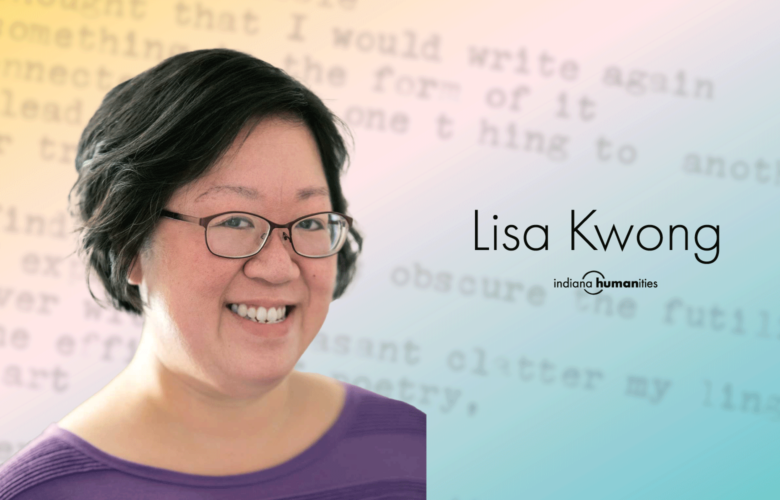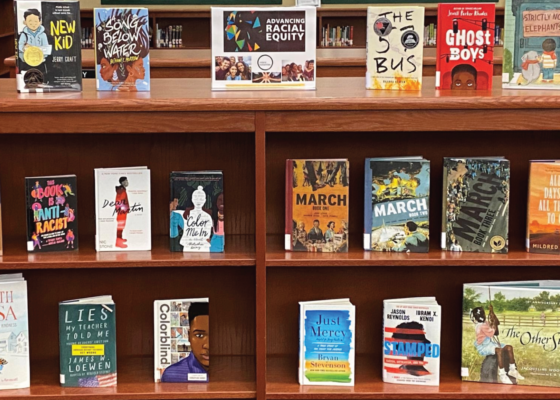Conversation with a poet | Lisa Kwong
May 25, 2023Mitchell L.H. Douglas recently spoke with author and Affrilachian Poet Lisa Kwong. She is an adjunct lecturer in the Asian American Studies program at Indiana University in Bloomington. This is…
Mitchell L.H. Douglas recently spoke with author and Affrilachian Poet Lisa Kwong. She is an adjunct lecturer in the Asian American Studies program at Indiana University in Bloomington. This is part one of their conversation about identity, the Asian American and Appalachian experience, building community and growing as a poet.
Douglas: I was introduced to your work when you submitted poems to PLUCK! The Journal of Affrilachian Arts & Culture and I had the honor of selecting “The ABC (Appalachian Born Chinese) Sequence” for publication. One poem in the sequence includes the speaker’s reaction to being judged by native speakers of Chinese when a breakdown in communication occurs:
I say
Sorry, I can’t speak Chinese,
and they gesture and laugh.
I must be a freak.
A cheap imitation,
American born, the outsider,
the crooked bamboo.
Douglas: This is a picture of a very specific experience and a powerful metaphor for a person caught between cultures. How often have you encountered this kind of story?
Kwong: I usually still encounter this if I go to a Chinese restaurant that I haven’t been to before. Sometimes I will also get questions from international Chinese students in my classes. Native Chinese people will ask if I am even Chinese, period. I’ve been mistaken for Korean the most, and that could be because my last name, Kwong, is close to the Korean last name Kwon. However, they will mistake me for being Korean without even knowing my name.
Douglas: How does the identity inform your poetry?
Kwong: I would say that my poetry strives to be independent, much like one of our American ideals, and it is also consistent in incorporating multiple cultures. One poem that has not yet seen publication details my love of Tevin Campbell and how I’ve been able to learn and sing his songs with accuracy, not something you would expect from a Chinese American woman. I have a deep love for 90s R&B and that may come out more in future poems or memoirs.
Douglas: The title of your debut poetry collection, Becoming AppalAsian, tells readers they are about to embark on a journey into innovative and, perhaps, unfamiliar territory. Can you explain the meaning and the process behind creating the title?
Kwong: The truth is I haven’t always felt Appalachian. So I did have to go through different experiences to become AppalAsian. The book is largely chronological, although some poems tackle past, present, and/or future within the same poem. I wanted to give readers my origin story and that begins with my father’s swim. If my father hadn’t survived, immigrated to the US, or settled in Radford, I might not exist or be Appalachian.
Douglas: What do you want readers to consider when they hear the word AppalAsian?
Kwong: I’ve gotten a range of responses to the term AppalAsian. The most common reactions are curiosity or amusement at the “pun” of it. One of the earliest responses I got from a stranger was online from an Asian American person I didn’t know. They thought the term was “hilarious”, and because I didn’t know their intent, I was a little annoyed, because in my mind, why laugh at someone’s identity like that? I didn’t claim the identity to be funny!
Anyway, to answer your question, I would like readers to first consider why the term exists. I want them to question their own ideas of who is Appalachian or Asian American and how this term challenges any preconceived notions.
Douglas: What is your family’s Appalachian experience?
Kwong: I’ll try to answer this question as best I can, because I’m not sure that anyone else identifies as Appalachian in my family, although I do mention my younger sister in “Portrait of Appalachian Chinese Girls in Their Grandmother’s Garden.”
First, I thought to be Appalachian meant living in a rural space. Radford, Virginia, is a small college town, so more suburban than rural or urban. It wasn’t until I attended the 2016 Appalachian Studies Association (ASA) Conference that I expanded my idea of what kinds of places could be considered Appalachian.
I would say that my family’s Appalachian experience is largely related to community. My siblings and I were literally raised by the community of Radford. We had “adopted” American grandparents who took us to church. People loved my parents’ restaurant. There they had first dates, grew up, raised children, ate lunch after church, even had wedding receptions. No matter where we went, we were my parents’ kids.
As one of the few Asian families in the area, we were also somewhat of a novelty. In the ‘80s, my family appeared in the local newspaper a few different times for different reasons, so you could say I was introduced to “celebrity culture” at a young age.
Douglas: How did the region develop the artist and teacher you are today?
Kwong: The sense of community I grew up with carries through to my work as an artist and educator. If you’ve read my acknowledgements in the back of my book, then you know that I have belonged to many different communities in the mere three places I’ve lived. While my closeness with different communities varies at different times in my life, I still remember just about everyone who has contributed to my writing in some way, big or small, even if they are no longer in my life.
It doesn’t always happen, but I do encourage every class I teach to become a community. It can be easier to achieve in smaller classes, like the ones I have at Ivy Tech, but it’s still possible when I have up to 40 students in my Asian American Studies courses at IU.
The region has also taught me to be more inclusive and empathetic, which is a continuous journey. Again, at the 2016 ASA Conference, I was introduced to the idea of multiple Englishes; how the region speaks is valid and should not be mocked. There are people of different education levels in Appalachia, and that should be respected, too.
As we know, stereotypes still persist about Appalachia, but it’s so important to continue to dismantle them.
Lisa Kwong is the author of Becoming AppalAsian (Glass Lyre Press, 2022) and a member of the Affrilachian Poets. Born and raised in Radford, Virginia, Kwong identifies as AppalAsian, an Asian from Appalachia. A first-generation college student, she earned her B.A. in English from Appalachian State University and holds an M.F.A. in poetry from Indiana University (IU). Her poem “Searching For Wonton Soup” was Sundress Publications’ 2019 Poetry Broadside Contest Winner, and her work has been nominated for the Weatherford Award in Poetry, Pushcart Prize, and Best of the Net. Her poems have appeared in About Place Journal, Women Speak, Best New Poets, A Literary Field Guide to Southern Appalachia, Pine Mountain Sand & Gravel, Anthology of Appalachian Writers, Still: The Journal, Naugatuck River Review, Appalachian Heritage, Pluck!, The Sleuth, and other publications. Kwong is also a multidisciplinary educator. She has taught courses in Asian American studies, creative writing, English composition, and student success at IU and Ivy Tech Community College in Bloomington, Indiana.
Read more about her at https://linktr.ee/lisakwongwriter



